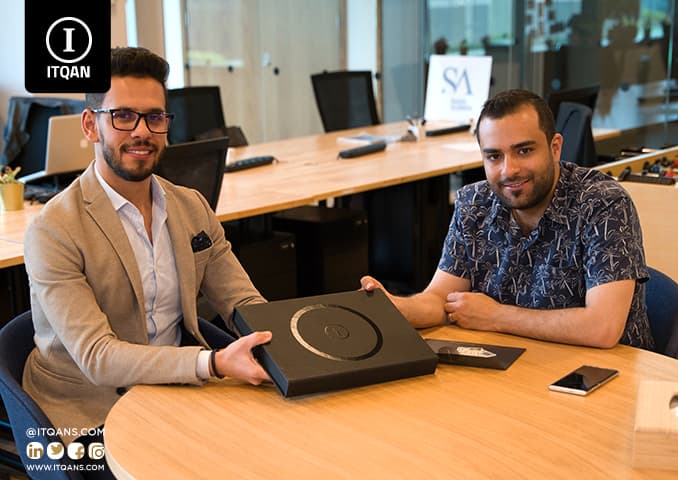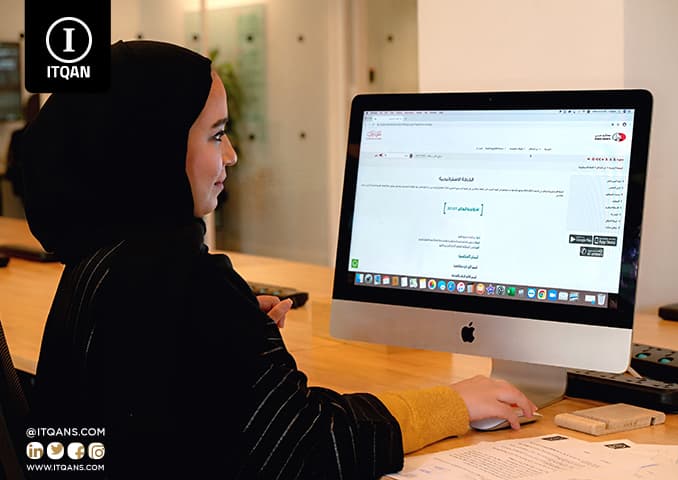Learn about the steps for establishing a business project, because establishing a business project is considered one of the most important decisions that an individual or company can make, as it requires good planning and precise knowledge of the steps necessary to ensure the success of the project. Whether you are thinking about starting a small or large project, good preparation and commitment to a clear plan are essential to achieving the desired goals. In this article, we will review the basic steps of starting a business, from the initial idea to the actual operation. These steps will help you plan and manage your project efficiently, avoid potential obstacles, and achieve the success you aspire to. Follow this article about the steps to start a business .

جدول المحتوى
ToggleSteps to establishing a business project
First, the project idea must be determined, as the first step in establishing a business project is to determine the main idea of the project. This idea must be innovative or meet a specific need in the market. It is important that you conduct extensive research to ensure the feasibility and viability of the idea. In addition to the following steps:
- Conducting a feasibility study: The feasibility study includes assessing the target market, analyzing competition, and estimating expected costs and revenues. This study helps you make an informed decision about continuing with the project or modifying the idea.
- Preparing a business plan: A business plan is a road map for your project. The plan should include objectives, marketing strategies, market analysis, organizational structure, and detailed financial estimates. A business plan helps you stay on track and present your project to potential investors and partners.
- Registering the project and obtaining licenses: You must register your project with the relevant government agencies and obtain all necessary licenses to practice commercial activity. Legal requirements vary from country to country, so make sure you know the specific procedures in your area.
- Determine funding sources: Determine how to finance your project. Available options can include self-financing, bank loans, investors, or partnerships. It is important to choose the option that best suits your project needs.
- Location selection: Choose a strategic location for your project that suits the nature of the activity and is close to the target customers. The location must be suitable in terms of costs and infrastructure.
- Recruiting employees: Hire the right employees who have the necessary skills and experience to support your project. Make sure to provide a good work environment and training programs that help them achieve optimal performance.
- Project launch: After preparing all the requirements, you can start launching your project. Make sure to implement a strong marketing campaign to attract customers and introduce them to your products or services. Continuously monitor project performance and make the necessary improvements to achieve sustainable success. By following these steps, you can establish a successful business that contributes to achieving your financial and professional goals.
The importance of establishing a business project
Establishing a business project carries with it many benefits and great importance, both on the personal and economic levels. Here are some points that highlight the importance of starting a business:
1. Achieving financial independence: Establishing a business can be an effective way to achieve financial independence and complete control over financial resources. The project can provide a sustainable and potentially significant income if managed successfully.
2. Creating job opportunities: Establishing a business contributes to providing new job opportunities, which helps reduce unemployment rates and support the local economy. A successful project can employ many people and contribute to improving their standard of living.
3. Promoting innovation and creativity: Business ventures are often a major source of innovation and creativity. Entrepreneurs can develop new products or services that meet market needs in innovative ways, which contributes to the progress and development of society.
4. Developing skills and experience: Managing a business requires a variety of skills and knowledge in areas such as management, marketing, finance, and others. This helps entrepreneurs develop their personal and professional skills, and enhances their ability to deal with various challenges.
5. Contributing to economic growth: Business projects play a vital role in promoting economic growth. By investing in a new project, individuals and businesses can contribute to increasing GDP and stimulating economic development in a community.
6. Achieving personal ambitions: Creating a business project gives individuals the opportunity to achieve their personal ambitions and transform their ideas and dreams into reality. This can be a great source of personal and professional satisfaction.
7. Positive social impact: Business projects can have a positive social impact by providing products or services that contribute to improving people’s lives. For example, a business venture in health or education can play a significant role in improving the quality of life for a community.
In short, creating a business project carries with it many benefits and possibilities that make it an important step towards achieving personal success and effectively contributing to the development of the economy and society.
Commercial license to establish a commercial project
Obtaining a business license is a crucial step in the process of setting up a business. A business license ensures that your business complies with local laws and regulations, and gives you legitimacy to conduct your business. Here are the basic steps to obtain a commercial license to establish a business:
- The first step is to determine the business you want to engage in. You should choose the activity carefully and make sure it is compliant with local laws. The activity can be commercial, industrial, or service.
- You must choose the appropriate legal form for your company, whether it is a limited liability company (LLC), a sole proprietorship, a partnership, or a branch of a foreign company. The legal form varies depending on the size of the company and the type of activity.
- Reserve a unique trade name that matches the type of business activity. The name must comply with the standards of the Department of Economic Development and not be similar to the names of other registered companies.
Preparing the necessary documents
The legal documents required to obtain a commercial license must be prepared. These documents usually include:
- Memorandum of Association and Articles of Association.
- A copy of the passports of partners and shareholders.
- A copy of the residence visa if the applicant is a resident.
- Submit an application for a commercial license to the Department of Economic Development (DED) or the relevant authority in the free zone if you prefer. You must fill out the form and submit all required documents.
Pay fees
- You must pay the required fees to obtain a business license. These fees vary based on the type of business activity and the legal form of the company.
- You may need to obtain additional approvals from different government agencies depending on the type of business. For example, health or educational activities may require approvals from relevant ministries or bodies.
- After the application is reviewed and approved by the Department of Economic Development or the relevant authority, you will obtain the commercial license. You can now start your business legally.
The importance of a commercial license
- Legality: A business license gives you the legal right to operate your business.
- Trust and credibility: Increases the trust of potential customers and partners in your business.
- Compliance with laws: Ensures that you comply with all local laws and regulations, protecting you from legal violations.
Obtaining a commercial license is an essential and crucial step to ensure the success and continuity of your business project.
Establishing a company in Dubai
Establishing a company in Dubai is a strategic choice for investors and entrepreneurs seeking to benefit from the thriving economic environment and the many advantages that the emirate offers. Dubai offers world-class infrastructure, a transparent legal system, and easy access to global markets, making it an attractive destination for business. In addition, Dubai free zones offer multiple tax advantages and facilities, including full foreign ownership and flexibility in operating commercial activities. Establishing a company in Dubai requires adherence to legal procedures and obtaining the necessary licenses, but with good planning and the support of local partners such as Itqan, success can be achieved easily and effectively.
The process of establishing a company in Dubai includes several basic steps that begin with determining the type of business activity you want to practice and choosing the appropriate legal form for your company, whether it is a limited liability company, a sole proprietorship, or a branch of a foreign company. After that, a distinctive trade name should be reserved that complies with local rules and regulations. Once the trade name is approved, the required legal documents, such as articles of incorporation and articles of association, must be prepared.
Next steps include applying for a business license from the Dubai Department of Economic Development or from one of the free zones if you prefer. You also need to select a suitable location for the company headquarters, which can be a physical or virtual office depending on the business requirement.
In addition, a business bank account should be opened in a local bank to facilitate financial transactions. If you have employees, you must register with the social security and health insurance system.
Dubai offers a business-friendly environment with broad growth opportunities, which makes establishing a company there a smart step towards achieving your business and professional goals. With specialized partners like “Itqan” to support you throughout all stages of establishment, you can ensure that all procedures are carried out smoothly and efficiently, allowing you to focus on growing your business and achieving the desired success.
Types of companies in Dubai
Of course, the types of companies in Dubai can be presented in tabular form for easy comparison and understanding:
| Company type | Description | Advantages | Requirements |
|---|---|---|---|
| Limited Liability Company (LLC) | A company can be established between two to 50 partners, where each partner’s liability is limited to his or her share in the capital. | – Foreign ownership of up to 100% (in some free zones) – Flexibility in formation and management – Legal protection of shareholders’ assets. | – Company’s articles of incorporation – Specific capital – 51% local partner if it is outside the free zones |
| Sole proprietorship | It is owned by only one person who has complete control of the company and unlimited liability for the company’s debts. | – Complete control of the company owner – ease of establishment and management | – Work permit – residency in the Emirates for non-citizens |
| Branch of a foreign company | Foreign companies can establish a branch in Dubai to carry out the same business activities as the parent company. | – Full foreign ownership – Access to the Dubai market – No need for a local partner | – Approvals from government agencies – License from the Ministry of Economy |
| Free Zone Company | A company established within a free zone that allows full foreign ownership and tax exemptions. | – Full foreign ownership – tax exemptions – advanced infrastructure | – Establishing the company within a free zone – Compliance with the laws of the free zone |
| Joint company | A partnership between two or more partners who are unlimitedly liable for the company’s debts. | – Sharing profits and responsibilities – Flexibility in management | – Partnership contract – approval of all partners on key decisions |
| Public Joint Stock Company | A company in which the capital is divided into shares that are tradable in the financial market. | – Raising large capital through stocks – Foreign ownership of up to 100% (in some sectors) | – Capital of no less than 10 million dirhams – Public Offering |
| Private Joint Stock Company | A company in which the capital is divided into shares but which are not traded on the financial market. | – Flexibility in raising capital – Greater control for founders | – Capital of no less than 2 million dirhams – No need for public subscription |
Investing in Dubai
Investing in Dubai is a strategic choice for investors and entrepreneurs from around the world, thanks to the thriving economic environment and the many advantages that the emirate offers. The most important investment sectors in Dubai are as follows:
Real estate sector
Dubai remains a lucrative market for real estate investment, especially in upscale and developed areas such as Dubai Marina, Palm Jumeirah, and Downtown Dubai. Forecasts predict that real estate prices will continue to rise by 5-10% annually in the coming years.
Tourism and hospitality sector
Dubai is witnessing an increasing demand from tourists thanks to its advanced infrastructure and various events and festivals. Investment opportunities in the hotels, resorts, restaurants and entertainment sector remain promising.
Technology and innovation sector
Dubai is seeking to become a global hub for technology and startups, providing investment opportunities in areas such as artificial intelligence, biotechnology, and financial technology.
Manufacturing sector
Dubai focuses on developing advanced manufacturing industries such as pharmaceutical, chemical and aviation industries. There are good opportunities to invest in these sectors. As for the logistics services sector, Dubai has a strategic location and advanced infrastructure that makes it a global logistics center. Promising opportunities in the field of storage, transportation and distribution.
I advise you to study these sectors carefully and consult with Itqan experts before making any investment decisions. It is also advised to focus on long-term investments to benefit from the expected growth of Dubai’s economy. I hope this information is useful to you.

Establishing a company in Dubai
Commercial activities in Dubai
Dubai is characterized by a wide diversity of commercial activities that can be practiced, thanks to the flexible economic environment and advanced infrastructure provided by the emirate. Business activities in Dubai span various sectors, giving entrepreneurs and investors ample opportunities to choose according to their interests and market requirements. Here are some of the prominent business activities through which you can obtain distinctive ways to invest in Dubai :
- Import and export: includes import and export of various goods and merchandise, such as clothing, electronics, food, and household appliances.
- Retail and wholesale trade: selling products directly to consumers or in large quantities to other merchants.
- Banks and Investment: Establishing banks or investment companies that provide various financial services.
- Real estate development: developing and building real estate projects, such as residential, commercial, and hotel buildings.
- Real estate brokerage: Providing mediation services between buyers and sellers in the real estate market.
- Information Technology: Providing IT services, such as software development, website design, and network solutions.
- Communications: Establishing companies that provide communications services, such as the Internet, mobile phones, and cloud services.
- Hotels and resorts: management and operation of hotels and tourist resorts.
- Travel agencies: providing tour organizing, ticketing and tourist accommodation services.
- Hospitals and clinics: Providing health care services, such as hospitals, clinics, and physical therapy centers.
- Health Products: Trade in health products, such as medicines, medical equipment, and nutritional supplements.
- Schools and Institutes: Establishing and managing schools and educational institutes.
- Vocational Training: Providing vocational training and career development programs.
- Manufacturing: Establishing factories to produce various products, such as food and beverages, furniture, and electronics.
- Management consulting: Providing consulting services in the fields of management, finance, marketing, and law.
- Design and creativity: providing graphic, interior, and fashion design services.
- Sports clubs: Management and operation of sports clubs and fitness centers.
In conclusion, establishing a business in Dubai represents a strategic and promising step for everyone seeking success and prosperity in a dynamic economic environment. Dubai provides investors with diverse opportunities available in various sectors, with great facilities in establishment and operation procedures, and an encouraging legal framework for business. In addition, Dubai has a developed infrastructure and a strategic geographical location that facilitates efficient access to regional and global markets.
Investing in Dubai is not only limited to economic opportunities, but also extends to a rich cultural and social experience, where ancient traditions coexist with modernity and innovation. Thanks to this unique balance, entrepreneurs can find in Dubai what they need to achieve their ambitions and build a prosperous future.
Frequently asked questions about setting up a business in Dubai
What are the strategic advantages of choosing a free zone to establish a company in Dubai?
Strategic advantages include full foreign ownership, tax exemptions, easy incorporation procedures, and access to a global market through its distinguished geographic location.
What taxes apply to companies in Dubai?
Normally, companies in Dubai enjoy complete exemption from income taxes, with the exception of some sectors such as banks and real estate companies.
What licenses are needed to start a business in Dubai?
Licenses vary according to the type of business activity, and include general commercial licenses, professional licenses, and licenses for special activities such as medicine, engineering, construction, and others.
Can foreigners obtain full ownership of their companies in Dubai?
Yes, in free zones and under certain conditions in some economic sectors, foreigners can obtain full ownership of their companies.
What types of companies can be established in Dubai?
Companies such as a limited liability company, a sole proprietorship, a company in a free zone, and others can be established, each with its own advantages and requirements.


















